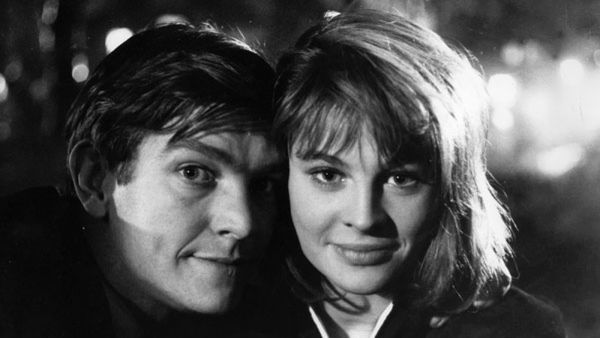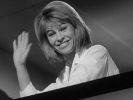Eye For Film >> Movies >> Billy Liar (1963) Film Review

The fashions may have come and gone since John Schlesinger commited Keith Waterhouse and Willis Hall's story of a young man torn between his family and the future to film but Billy Liar is still suprisingly light on his feet 50 years down the line.
Tensions between the current generation of adults and the next one coming up are pretty much universal (an idea explored more fully in documentary Teenage, which is well worth looking out for), so it's perhaps no surprise that Billy retains a lot of his appeal half a century on.

Tom Courtenay brings a jittery energy to Billy Fisher - nicknamed Billy Liar by his chums because of his ability to spin a tall tale. The irony is, of course, that the only person Billy is really deluding with his wild imaginings - many of which feature him strafing members of his family with a machine gun - is himself. "A man could lose himself in London," he declares but what he means is that he hopes he could find something there.
The truth is that spinning a line is easier than tackling the reality of his middle-class life, fraught with family expectations and complicated by the fact that he's stringing two girls along at the same time. One, Barbara (Helen Fraser, doe-eyed and already closer in opinion to her parents' generation than her own) is the housewife's choice - polite and playing by the rules. Rita (Gwendolyn Watts), meanwhile, is largely present for her cartoon comedy value - bold, brash and unlikely to take his two-timing lying down.
But there is also a third girl. Liz (Julie Christie), who shines like a beacon of promise - even her abbreviated name and more tousled, less structured haircut are somehow redolent of the next generation rather than the one that Rita and Barbara inhabit. Schelsinger - in the spirit of other British New Wave directors such as Ken Loach and Lindsay Anderson - shoots her skipping past building sites and wrecking balls. Except here, the emphasis is on possibility rather than kitchen sink bleakness, as though she is the herald of the better life so many wished for in the early Sixties after the austerity of rationing and drudge of the early post-war years had come to an end. Certainly, she offers Billy the opportunity to embrace something new if only he is willing to take a chance.
Billy may not be altogether likeable but there is a sense that his heart is in the right place and it's hard not to feel sympathy for him as he comes to realise the clever trick he thought he'd pulled at the funeral parlour where he works had been spotted by his boss (the ever-watchable Leonard Rossiter) long ago. In key scenes with his mother (Mona Washbourne) and father (Wilfred Pickles), we see him grappling not just with the nature of his lies but also emotions that no amount of crafty imagining can change.
This is a world where self-delusions stack up, as useless as last year's unused calendars but also a place where hope can rest in something as simple as the purchase of two milk cartons. Billy's desires hold a ring of truth, even if he doesn't yet realise it.
Reviewed on: 17 May 2013If you like this, try:
Closely Observed TrainsHere We Go Round The Mulberry Bush
Poor Cow
Submarine

















